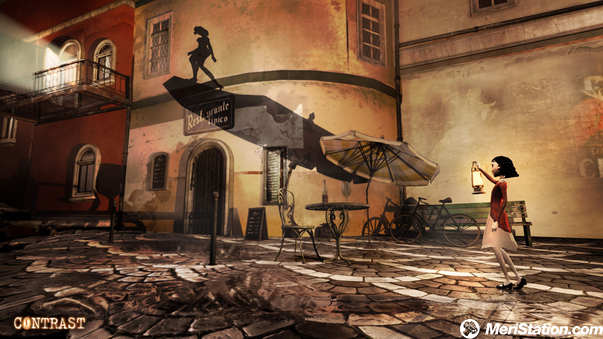The year, 1923: Our story begins in the room of little Didi , an adorable and adventurous girl, with an independent spirit who lives with her mother, Kat . Some time ago Johnny, his father, abandoned them, but Didi yearns for his return and compensates for his absence through
Dawn , a friend who appears when there is no one around. As a single mother, Kat is doing everything possible to get her daughter ahead. He has been working hard for months to become a headliner at the most popular cabaret in the city:
the Ghost Note. This is the big night, and possibly his last chance to start earning enough money, although that means leaving Didi at home alone. Through the slums, the streets and the neighborhood there is a rumor that Johnny has returned to the city and that he is trying to make something big … And here, after a first brushstroke of the characters and their situations, is where the game begins.
Without lavish intros, only with a video scene with elements that at first clash us, without music. The most sober way possible is how Contrast begins. As we witness a well-written and better-folded story, we realize that only Didy and Dawn are the characters we will see physically.
The rest only in shadows. The plot of the game advances only through dialogues and scenes of simple planning, with minimal camera work. But do not think that sobriety and minimalism will cause a boring show. Conversely, then, as in a play for example,
the strength of the characters, the details of an adult story with elements of abandonment, of loneliness, of recovering loved ones, of lies, is narrated through of well-written and better-interpreted dialogues – in English or French, although there are subtitles in Spanish – by actors who bring the tone and nuance appropriate to their characters.
To not give us all done, Compulsion has distributed a series of collectibles for us to look for as well as necessary objects such as fuses. In the form of photos,
newspaper articles or letters, its importance is essential to capture the whole plot, since it will turn to even more fantastic environments. Along the way we have a dramatic story that really achieves its goal of showing us themes such as Didy’s loneliness or the sadness of his mother. As brief as the Brothers we enjoyed this summer or
Limbo, its three hours -including finding all its secrets- are really short, because when we start to be comfortable with control, to master its mechanics and secrets -for elements like the pieces that we find floating there are no tutorials, we have to learn what to do on our own-, to be stuck inside the story and realize where it starts to shoot, is when Contrast ends.
But its brevity does not prevent to close the plot as it must close it, with a touch M. Night Shyamalan style although leaving too many loose ends. At the end of the day we are inside
one of those indie stories, of those experiences that with a handful of well-written dialogues manage to captivate and maintain interest much more than AAAs that last twice and triple and have explanatory cinematics every 10 minutes with overexposure of data and information.
Divided into 3 acts and 14 chapters, the mechanics of Contrast is a mixture of puzzles and platforms as we explore the streets of a city not exactly linear and corseted, but not open as in a sandbox, but rather semi-open. The fusion between both mechanics causes the resolution of a puzzle to generate the necessary physical elements for us to advance

